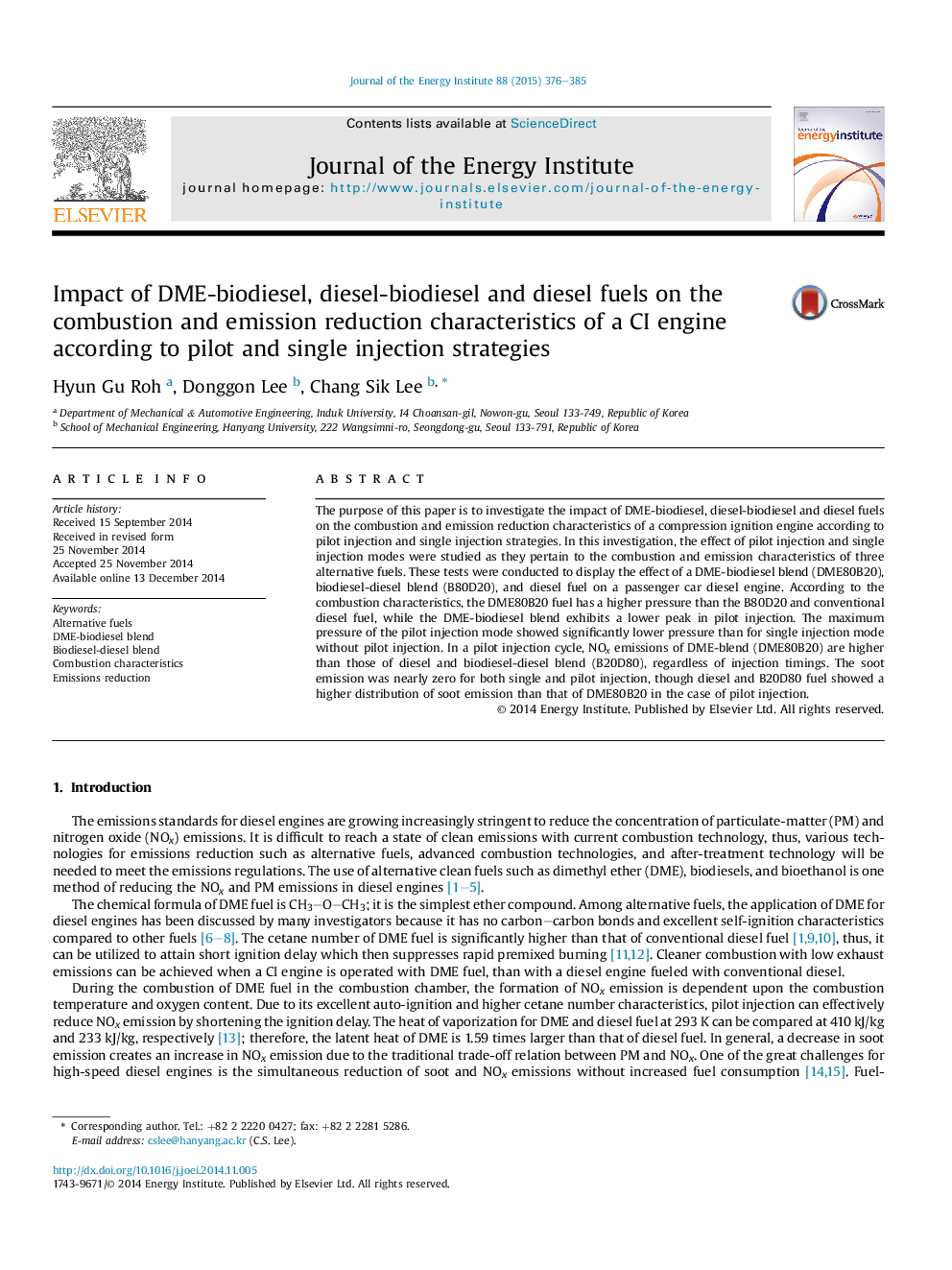| Article ID | Journal | Published Year | Pages | File Type |
|---|---|---|---|---|
| 1747609 | Journal of the Energy Institute | 2015 | 10 Pages |
Abstract
The purpose of this paper is to investigate the impact of DME-biodiesel, diesel-biodiesel and diesel fuels on the combustion and emission reduction characteristics of a compression ignition engine according to pilot injection and single injection strategies. In this investigation, the effect of pilot injection and single injection modes were studied as they pertain to the combustion and emission characteristics of three alternative fuels. These tests were conducted to display the effect of a DME-biodiesel blend (DME80B20), biodiesel-diesel blend (B80D20), and diesel fuel on a passenger car diesel engine. According to the combustion characteristics, the DME80B20 fuel has a higher pressure than the B80D20 and conventional diesel fuel, while the DME-biodiesel blend exhibits a lower peak in pilot injection. The maximum pressure of the pilot injection mode showed significantly lower pressure than for single injection mode without pilot injection. In a pilot injection cycle, NOx emissions of DME-blend (DME80B20) are higher than those of diesel and biodiesel-diesel blend (B20D80), regardless of injection timings. The soot emission was nearly zero for both single and pilot injection, though diesel and B20D80 fuel showed a higher distribution of soot emission than that of DME80B20 in the case of pilot injection.
Related Topics
Physical Sciences and Engineering
Energy
Energy Engineering and Power Technology
Authors
Hyun Gu Roh, Donggon Lee, Chang Sik Lee,
